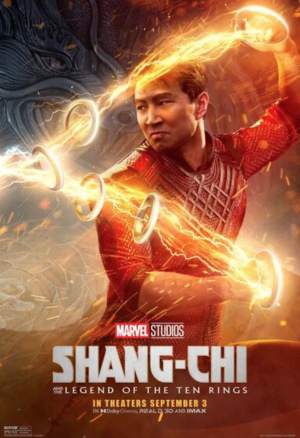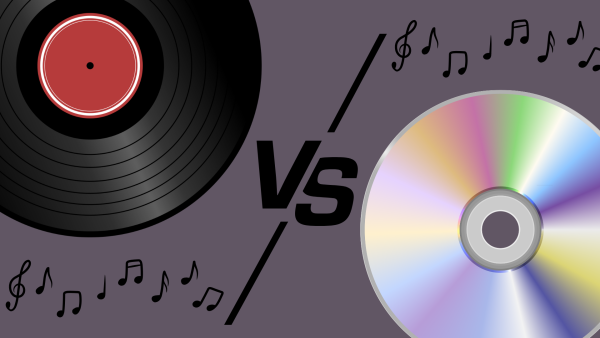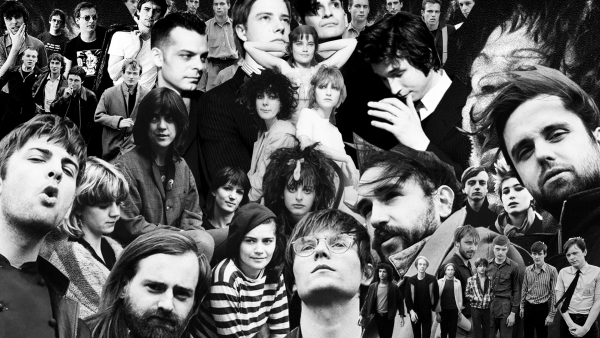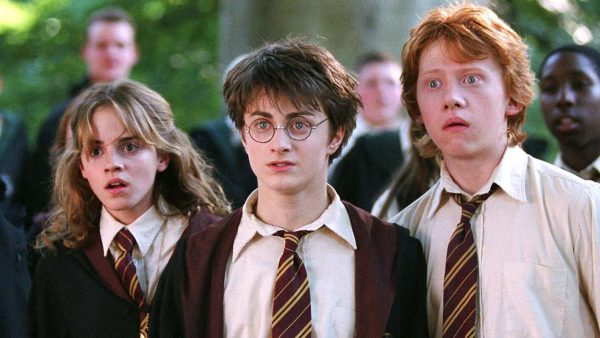Shang-Chi: New Faces, New Successes

With the return of movies in theatres, Marvel braved the new frontier during Labor Day Weekend with their latest superhero movie, “Shang-Chi: The Legend of the Ten Rings.” As the newest superhero to join the Marvel Cinematic Universe, Shang-Chi, played by Simu Liu, is another step in the right direction for the franchise’s increasing efforts for diversity, and simply put, an incredibly good movie. With the combined force of director Dustin Daniel Cretton’s creative vision and stand out roles from both the leads and secondary characters, the roughly two-hour runtime is jam packed with the action, humor and lighthearted fun that Marvel has become known for.
For many new fans only familiar with the characters they’ve seen on the big screen, Shang-Chi was an untapped character compared to household names like Iron Man or Captain America. While this was worrying for box office predictions, with fans speculating it would be Marvel’s first big flop in recent years, the movie itself aimed to soothe those feelings of unfamiliarity with the flawless use of flashbacks and cut-scenes integrated throughout. The classic villain origin story for Shang-Chi’s father, Xu Wenwu, played by internationally acclaimed Tony Leung, had the audience hooked from the beginning as it dove into the true legend of the Ten Rings, both the item and the organization, that perfectly set up the plot and expectations for what was to come.
With this unfamiliarity, Marvel also chose to bring back previously established characters throughout the movie who helped keep the audience in the loop and to effortlessly integrate Shang-Chi as the newest Avenger. Doctor Strange’s Wong was a continuous familiar face from beginning to end, but the real star was Ben Kingsley’s role as Trevor Slattery. Kingsley was first introduced into the MCU in “Iron Man 3” as the actor hired by Aldrich Killian to portray the Mandarin in an attempt to cripple various governments, meaning, Kingsley was merely a prop for the real villain of the story. While Kingsley’s character was eventually revealed to be oblivious to his role in a terrorist cover-up all along, it did introduce possibilities of the real Ten Rings for the franchise as early as 2013. “Shang-Chi: The Legend of the Ten Rings” took the brilliant opportunity to continue Kingley’s character, who’s comedic timing and ditzy role added another layer of the classic Marvel humor we’ve all become accustomed to.
The stand-out performances from the side characters were impressive, but it quickly became clear that Simu Liu’s presence on the big screen is as humorous and dorky as he is on Twitter. When paired with Awkwafina’s role as the quirky sidekick Katy, the duo has so much chemistry that it’s impossible to not love their karaoke and driving-filled antics. Even when given the perfect opportunity to give the two characters a stereotypical friends-to-lovers arc at the end, especially with the final scene in Tao Lo, it was refreshing to see two characters simply strengthen their already irreplaceable bond. The casual ribbing and mutual bad decisions make them a great pair, and based on their last karaoke adventure with Wong, hopefully they’ll keep that dynamic in later movies as well.
Putting the performances aside, the movie was incredibly well done. The fight scenes, paired with the beautiful and interwoven score, were more similar to well choreographed dances than actual fighting, and the use of weapons, such as Xu Xialing’s rope dart, was awe inspiring. The costumes were another added feature to the use of culture and detail to the mythology behind the story of Tao Lo, giving the village an added feel of originality instead of the pick-and-choose mentality many new movies have with aspects of various Asian cultures.
In terms of representation and what “Shang-Chi: The Legend of the Ten Rings” means for the Asian-American community, Marvel successfully created a well-rounded character and plot that both combated previous portrayals of stereotypes and has quickly become a beloved fixture on the internet. The script and plot didn’t make Shang-Chi’s Asian heritage his only notable character trait like so many films and shows have done before, but instead allowed it to be another nuance that gave the story depth and complexity amidst a rising call for more representation in franchised media. Shang-Chi rivals Black Panther in the shifting social commentary for Marvel, and with his new status as an Avenger, it’s come to be expected that the company continues on that route. The objective box office and rating success from both critics and audience members alike speak to greater and newer things in the franchise’s future, adding more hype for upcoming movies like “Eternals” and “Spider Man: No Way Home.”







